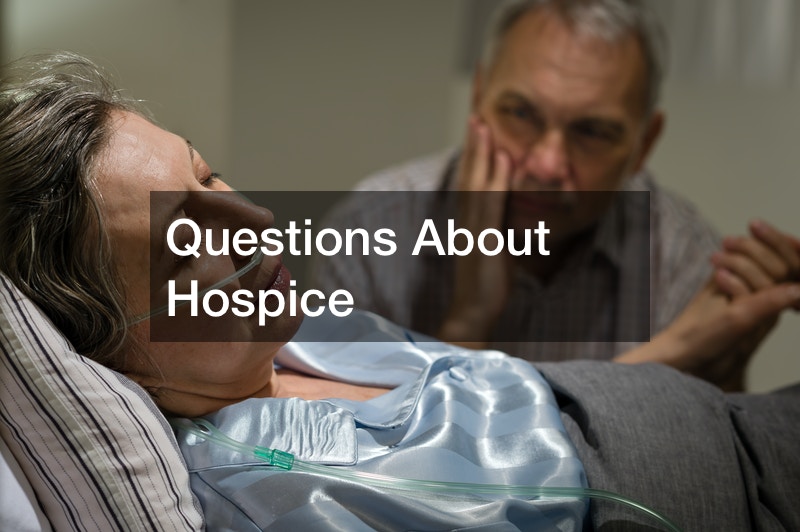Do you have questions about hospice? Read on to answers to some of the most frequently asked questions about end-of-life care.
Hospice is palliative care offered to support individuals during the last months of their lives. Treatment is geared towards alleviating pain and quality-of-life maintenance instead of treatment.
Can you get hospice care in a nursing home?
It depends. Some nursing homes do offer hospice care or hospice-like care. And many hospice organizations have inpatient hospice units for individuals with more intensive needs.
Can you get hospice care without insurance?
Medicaid and Medicare both cover many hospice plans and programs, making it possible for most people to obtain palliative end-of-life care even if they don’t have private insurance. A local social work organization can help with the Medicaid or Medicare sign-up process if you don’t have private insurance.
Can you get palliative care at home?
It often depends on several factors, including the services offered by your specific hospice program, your social support system, and your specific needs. Some hospice programs are set up to help individuals stay at home, and others require you to pay for nursing assistance out of pocket. Make sure to carefully review the information provided during your intake session to ensure you know what services will be covered by the particular hospice organization you’re working with.
Can you have hospice at home?
Absolutely, particularly in the beginning phases of hospice care. Many individuals enter hospice while still able to live at home. In these cases, hospice care, such as nursing visits, often take place in the home.
This is a stage of your life that you are ill prepared for.
After meeting with doctors, administrators, nurses, and a few helpful advisers, you have reached the difficult decision that it is time to sign your mother up for hospice care. With a few frantic days of research you have found that holistic care hospices are going to be the best option. Fortunately, because you live in a large city in an area where there are many older people, there are a number of hospice care options. In fact, you have read on at least one or two websites that there are as many holistic hospice care options in a 50 mile radius of your Arizona home than there are anywhere else in the country.
Given that your mom is a former Montessori middle school teacher means that you know she will appreciate a care model that treats the whole person. A life long educator who was know for following the child, this care decision feels like the best way to honor the life that your mother has led, while at the same time ushering both your mom and your family through this difficult transition.
Finding the Best End of Life Care for Your Loved One Is Important
In a time when America’s population is aging more than ever before, it should come as no surprise that there are an increasing number of families who are looking for hospice care settings, as well as other age in home options. Consider some of these facts and figures about the hospice options in America and the impact that this service is having on the nation’s economy:
- 20% of the U.S. population will be over 65 by the year 2030.
- 1.38 million Medicare beneficiaries were enrolled in hospice for 24 hours or more in the year 2015.
- On call 24 hours a day and seven days a week, hospice staff members serve an important role in the care of many aging Americans.
- Providing funding for these programs in 1974, Senators Frank Church and Frank E. Moss were the ones who introduced the first hospice legislation.
- When a religious order of monk set up hospitals along a pilgrimage road leading to Jerusalem, the history of hospice actually dates back to the 11th century.
- The number of hospice patients grew from 513,000 in the year 2000 to nearly 1.4 million by the year 2015.
Getting end of life care for your loved ones is a very difficult task. It can be easier, however, if you find the right hospice care center.

